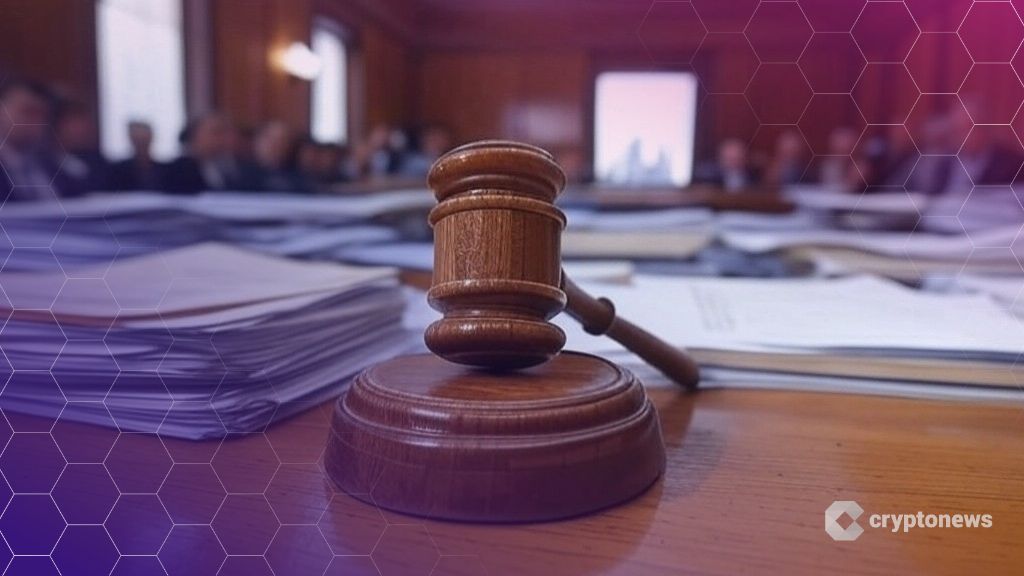A U.S. appellate court has ruled against Custodia Bank, the Wyoming-based crypto-focused institution founded by former Morgan Stanley executive Caitlin Long, in its long-running battle to gain direct access to the Federal Reserve’s payment system.In a decision filed Friday, the U.S. Court of Appeals for the Tenth Circuit affirmed an earlier ruling from the District of Wyoming that sided with the Federal Reserve Board of Governors and the Federal Reserve Bank of Kansas City. Source: Court ListenerTenth Circuit Upholds Fed’s Decision to Block Custodia’s Access to U.S. Payment SystemThe judgment marks the latest setback in Custodia’s five-year effort to obtain a Federal Reserve “master account,” a critical gateway for direct participation in the U.S. banking system.“This case comes clothed in 21st Century terms: cryptocurrency, digital assets, instant wire transfers, and master accounts,” the judges wrote in the opinion. “But there is nothing new about this issue. Courts have probed the legality of our nation’s central bank and interpreted the relevant statutes since the founding.”The three-judge panel, composed of Circuit Judges Tymkovich, Ebel, and Rossman, upheld the lower court’s conclusion that the Federal Reserve acted within its authority when it denied Custodia’s application. The ruling effectively leaves the central bank’s decision intact, confirming that the Fed retains broad discretion in determining which financial institutions can access its payment infrastructure.Custodia, previously known as Avanti Bank, first applied for a master account in October 2020 after receiving a special-purpose depository institution (SPDI) charter from the state of Wyoming. The application, typically processed within a week, languished for over 19 months without resolution. In January 2023, the Federal Reserve Bank of Kansas City formally rejected the request, citing “safety and soundness” concerns tied to the bank’s focus on digital assets. U.S. digital asset-focused bank Custodia has filed a lawsuit against the FED Board of Governors and the Federal Reserve Bank of Kansas City over “unlawfully” delaying its application for a master account with the FED. Read more https://t.co/8rpBp5piaM— Cryptonews.com (@cryptonews) September 23, 2022 The Fed argued that Custodia’s business model relied too heavily on volatile crypto markets and lacked sufficient controls to manage illicit finance risks. It also pointed to the bank’s limited experience in traditional risk management and the potential systemic implications of granting direct access to a crypto-centered institution.Custodia sued the Federal Reserve in June 2022, claiming an “unlawful delay” and arguing that eligible institutions are entitled to a master account under federal law. After the Wyoming court ruled in favor of the Fed in March 2024, Custodia appealed, asserting that the decision gave the central bank excessive discretion over market access. Judge Rules Against Digital Asset Bank Custodia’s Bid for Federal Reserve Master AccountCustodia Bank has been denied a U.S. Federal Reserve master account by the United States District Court for the District of Wyoming. #CryptoNewshttps://t.co/lHtNJ69ZdW— Cryptonews.com (@cryptonews) March 31, 2024 Friday’s ruling reaffirmed the lower court’s position, dealing another blow to Long’s push to integrate crypto banking into the U.S. financial system. In a statement posted to X following the judgment, Custodia said it was “actively considering” petitioning for a rehearing. Statement of @custodiabank: pic.twitter.com/6U0FPzaKCm— Custodia Bank (@custodiabank) October 31, 2025 “While we were hoping for a win at the Tenth Circuit today, we received the next big thing — a strong dissent,” the company wrote, referring to a partial dissent that raised constitutional questions about the Federal Reserve’s authority.Why Won’t the Fed Grant Crypto Firms a Master Account?A Federal Reserve master account would have allowed Custodia to connect directly to core U.S. payment systems such as Fedwire and the Automated Clearing House (ACH). Such access enables banks to settle transactions, hold reserves, and participate directly in monetary policy operations, benefits currently limited to regulated depository institutions.Crypto-focused firms have long sought similar access to improve efficiency and reduce reliance on intermediary banks. However, the Federal Reserve has not approved any master account applications from crypto-native institutions to date.The central bank has repeatedly cited the sector’s high volatility, potential for fraud, and insufficient consumer protection as reasons for caution.Source: CongressCustodia’s case has become a focal point in the broader debate over how traditional banking regulation should apply to crypto firms. Custodia Bank CEO @CaitlinLong_ has criticized the U.S. government’s failure to address crypto debanking since Trump returned to office. #Trump #Regulationhttps://t.co/iSH4RxoinL— Cryptonews.com (@cryptonews) March 2, 2025 Long has accused the Fed of double standards, arguing that large traditional banks receive preferential treatment while smaller innovators face “debanking.”In April, Long criticized the Federal Reserve for maintaining restrictions that prevent banks from directly holding crypto or issuing stablecoins on public blockchains like Ethereum. Caitlin Long claims the US Federal Reserve masked its anti-crypto stance with fake rule relaxations while protecting big-bank stablecoins and blocking real crypto progress.#Caitlin Long #USFed.https://t.co/6kALn4okMF— Cryptonews.com (@cryptonews) April 28, 2025 She argued that the Fed continues to favor private blockchain systems controlled by major banks, creating a competitive imbalance.Earlier this year, Custodia announced it had launched “Avit,” a tokenized U.S. dollar stablecoin issued jointly with Vantage Bank on Ethereum. @custodiabank and @Vantage_Bank have announced the launch of the first-ever U.S. bank-issued stablecoin deployed on blockchain.#Custodia #Stablecoinhttps://t.co/Y7VyUBlr2i— Cryptonews.com (@cryptonews) March 26, 2025 The project, backed by on-demand deposits held within the banking system, was described as the first U.S. bank-issued stablecoin deployed on a public blockchain. Long said the initiative proved that banks could “tokenize demand deposits on a permissionless blockchain in a regulatorily compliant manner.”Despite such efforts, federal regulators have maintained a cautious stance. Speaking in March, Long said that under the current administration, no meaningful changes have been made to rules labeling digital asset exposure as “unsafe and unsound” for banks.The post Fed Crushes Caitlin Long’s Crypto Bank’s 5-Year Bid for Master Account appeared first on Cryptonews.

More Headlines

Coinbase Rebuts Senator’s ‘Corruption Factory’ Claim Over Trump Ballroom Donation
CryptoNews.com

Bullish Signals: 3 Trending Cryptos to Get On Halloween 2025 As Market Turns Red – XRP, BTC, SOL?
CryptoNews.com

Anthropic’s Claude AI Predicts the Best Crypto Picks For Halloween 2025 Based on Historical Analysis Report
CryptoNews.com

Multichain Liquidators Win Key Ruling as New York Court Extends Freeze on Stolen USDC
CryptoNews.com

dYdX President Confirms US Market Entry With Expanded Trading
CryptoNews.com
Crypto News Today, October 31 – BTC Price USD Bounces Back To $110K But XRP Slips Below $2.5 And ETH At $3.8K: Best Crypto To Buy?
99bitcoins
